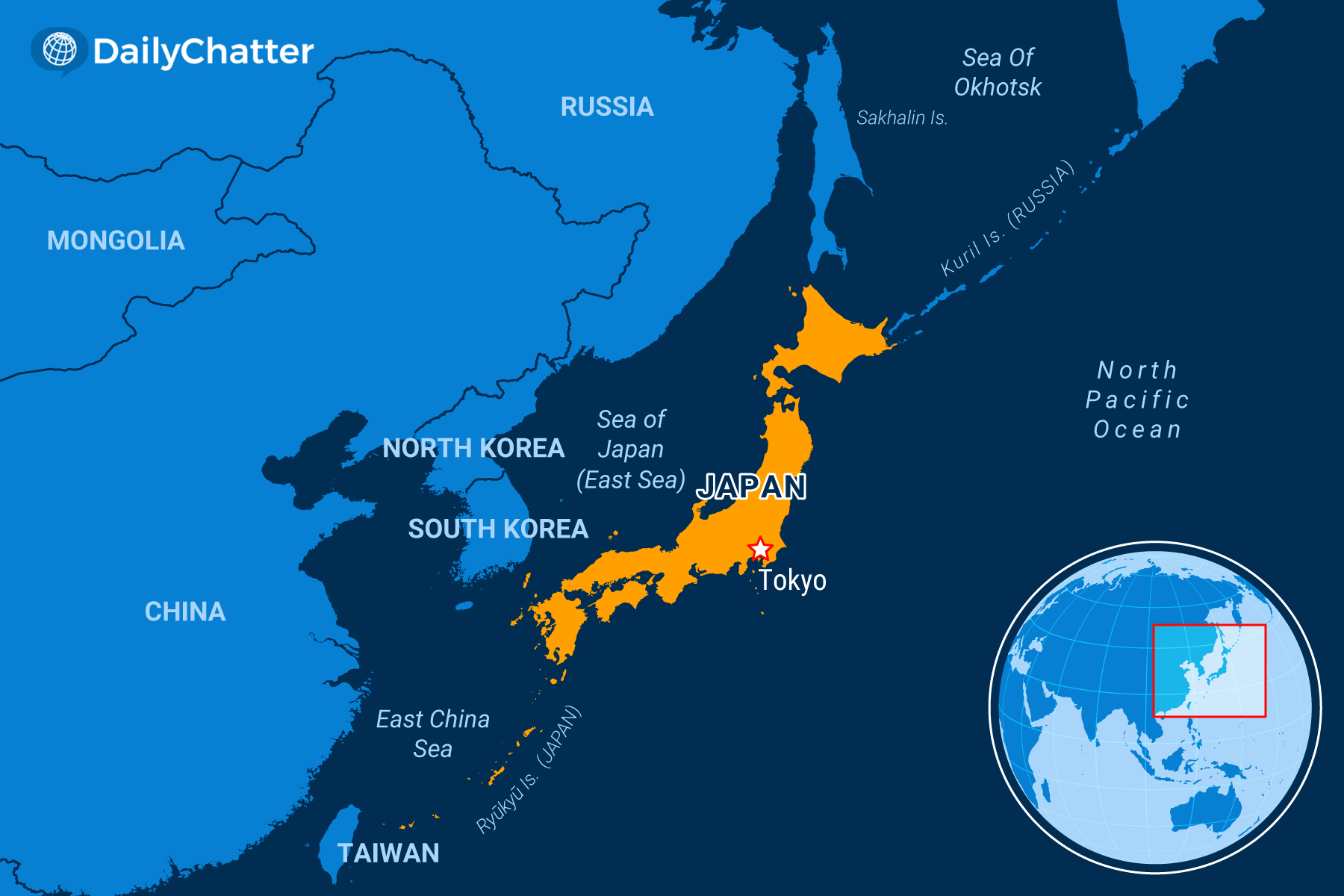
The World Today for April 26, 2024
NEED TO KNOW
Plows to Swords
JAPAN

A recent survey found that more than 92 percent of Japanese respondents held unfavorable views of China, an increase of almost 5 percent compared with last year, reported the Japan Times. The findings hold lessons about geopolitics in Asia, specifically the shift in Japan’s increasingly robust military posture.
Since World War II, when the country surrendered to the US after two nuclear attacks, Japan has ostensibly pacifist policies under its constitution. Under a 1960 treaty with the US, for example, American forces must intervene to defend Japan in the event of war – but Japan has no concomitant obligation, explained Lund University Asian expert Paul O’Shea and Sendai Shirayuri Women’s College professor of international relations Sebastian Maslow in the Conversation.
Now, however, as Russia tramples over Ukrainian sovereignty and many suspect China is considering an invasion of Taiwan, Japanese leaders are reconsidering their defense policies.
Wealthy, technically advanced, and bearing the legacy of a long military history – Japan’s defeat of Russia in 1905 was one of few examples of a non-European power defeating a European one – Japan recently unveiled a next-generation fighter, for example, that symbolizes its new stance.
“Japan is slowly heading toward a forward-looking defense posture that would have been unimaginable in the not-too-distant past,” wrote Japan Forward, adding that the country was increasing its military budget to 2 percent of gross domestic product through the next three years, putting it on track to become the third-biggest military spender globally after the US and China.
As its new carriers come online, the Japanese navy will arguably tip the balance between US-led forces and China in the event of a confrontation over Taiwan, added the Telegraph.
These moves aren’t isolated to Asia or the Pacific. Japan, for instance, has also become a major financial donor to Ukraine – supplying vital aid while politicians in the US and Europe dither – and might supply weapons to the former Soviet republic, risking the ire of Russian President Vladimir Putin, reported Deutsche Welle.
Many Japanese citizens, wary of the destruction their nation has suffered and perpetrated on others in the past like the Rape of Nanjing in China in 1937, are not keen on Prime Minister Kishida Fumio’s plans.
Americans like Rahm Emanuel, the current US ambassador to Japan, disagree, however. In a Washington Post op-ed, Emanuel argued that Fumio and his allies realize that Japan can’t separate itself from the rest of the dangerous world, especially when its giant neighbor could become more aggressive in the near future.
All this, he adds, is part and parcel of the “rise of Japan,” he said. “The experts didn’t know much about the new Japan. No one predicted that this would be an era of Japanese transformation, a time when the Japanese surprised nearly everyone with what they can and will do.”
To read the full edition and support independent journalism, join our community of informed readers and subscribe today!
Not already a subscriber?
If you would like to receive DailyChatter directly to your inbox each morning, subscribe below with a free two-week trial.
Support journalism that’s independent, non-partisan, and fair.
If you are a student or faculty with a valid school email, you can sign up for a FREE student subscription or faculty subscription.
Questions? Write to us at [email protected].
